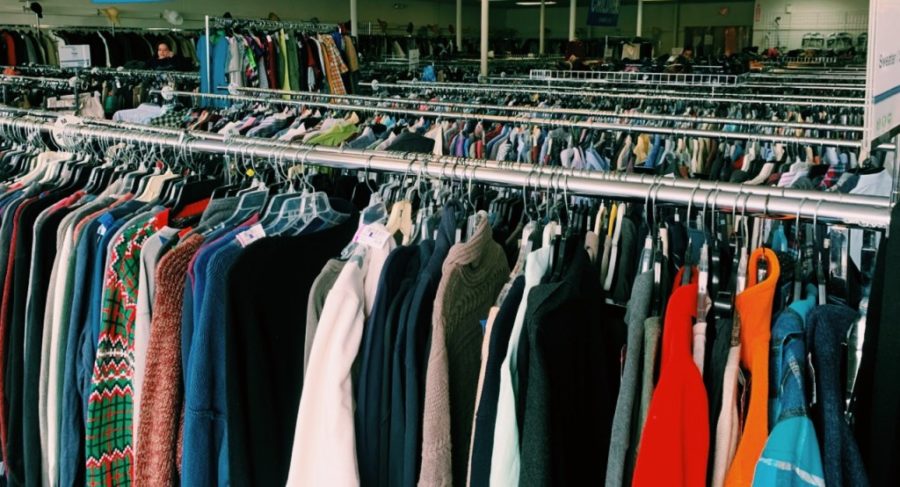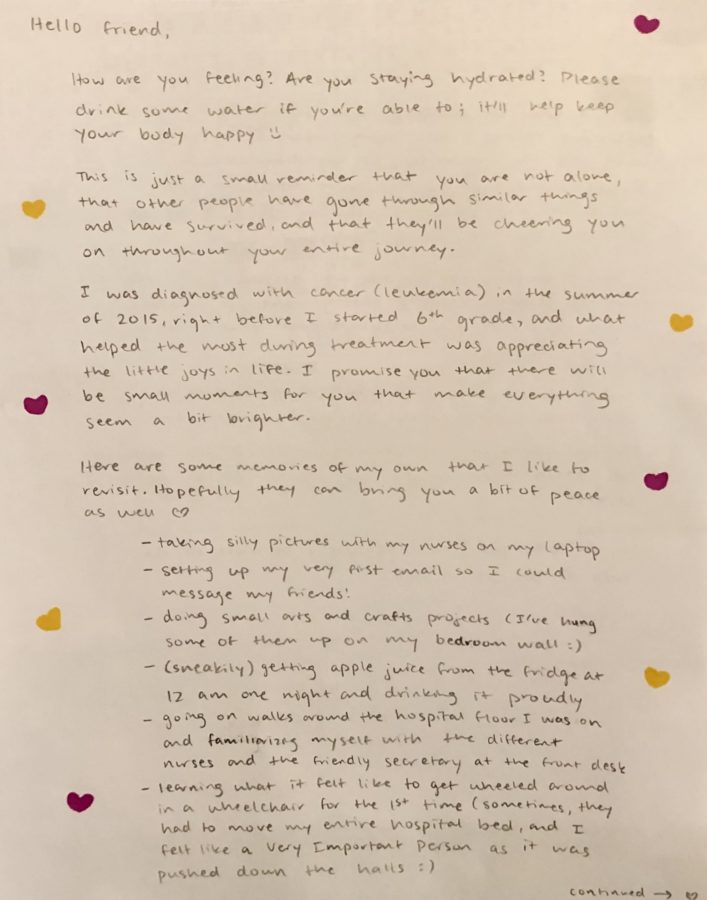By Johanna Duda, Staff Reporter
In an effort to combat climate change and the harsh work environments of the textile industry, senior Minna Gersbach started running her own clothing store through Instagram in June. Gersbach sells clothes she has thrifted, her own gently used clothes and handmade jewelry.
Gersbach notes that shopping at retail stores is not only bad for the environment, but it also contributes to awful conditions that the workers of the textile industry are subjected to.
“There’s the one part with the environment, but then there’s the part of the laborers in third world countries who are being paid almost nothing to make clothes and they have a terrible (work) environment and awful situations,” Gersbach said. “By supporting fast fashion, you’re contributing directly to that.”
The products that Gersbach ships consist of thrifted or reused clothes secured in a minute amount of extra packaging compared to other sellers. They add extra aesthetically pleasing boxes or wrapping paper.
“I know a lot of sellers try to buy lots of expensive packaging to try and make it look cute,” Gersbach said. “We save all our packaging and we reuse it over and over again when we sell things. I don’t think we’ve ever bought actual packaging. It’s just wasting more.”
By carrying through with this initiative, she avoids adding to the millions of waste the fashion industry produces each year.
In a perfect world, Gersbach would want everyone to thrift because of all the benefits it has. Thrifting is better for the environment and cheaper.
“Anyone can (buy ethically), if you just go online and search up, you can find companies that are good for the environment,” Gersbach said.
Buying thrifted clothing also makes Gersbach feel good about herself.
“Sometimes I put on an outfit and it’s like, wow, my whole outfit is thrifted. It just makes me feel so much better,” Gersbach said.
Overall, Gersbach is happy with the impact her online store has made on herself and others. She likes the fact that with her business, she has the opportunity to motivate others to thrift.
“Even though it’s such a small difference, it really makes me feel good about myself. I’m almost encouraging other girls to go out and thrift,” Gersbach said.
Gersbach hopes that in coming years, the passion for thrifting and ethical shopping might apply to the majority of teenagers.
“It’s definitely gotten a lot more popular in the past few years, but it’s not a majority yet. Hopefully soon it will be,” Gersbach said.

























































































